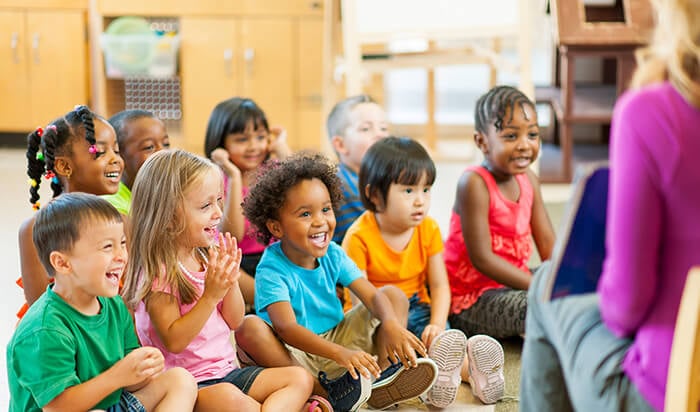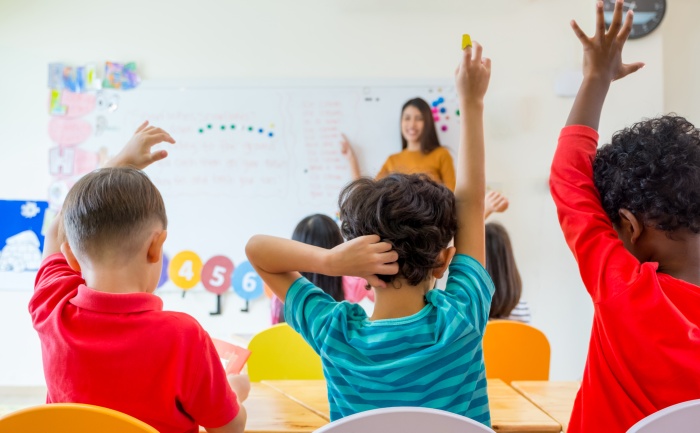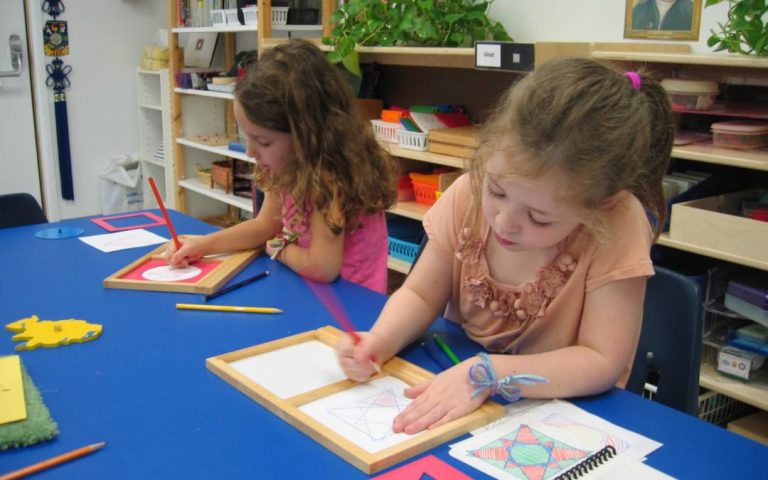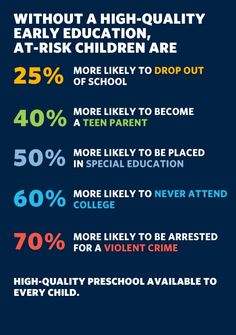What Grades are Early Childhood Education : A Comprehensive Guide

Early Childhood Education covers preschool and kindergarten, generally for children aged 3-5 years old. Early Childhood Education is a crucial stage in a child’s development, as it lays the foundation for their future academic and social success.
This stage typically includes preschool and kindergarten, with a focus on play-based learning and developing social skills. Children in early childhood education programs learn basic literacy and numeracy skills, as well as social and emotional skills such as sharing, taking turns, and problem-solving.
The curriculum is designed to be age-appropriate, and teachers use a variety of methods to engage young learners, such as storytelling, singing, and hands-on activities. Early Childhood Education programs also provide a safe and nurturing environment for children to learn and grow, helping to build their confidence and independence.
The Importance Of Early Childhood Education
Benefits Of Early Childhood Education
Early childhood education lays the foundation for a lifetime of learning and development. It provides children with the essential skills and knowledge they need to succeed in school and in life. Through early education, children are exposed to a wide range of experiences that help them develop socially, emotionally, and cognitively.
Impact On Future Academic Success
Early childhood education has a profound impact on a child’s future academic success. Research has shown that children who participate in high-quality early education programs are more likely to perform better in school, graduate from high school, and pursue higher education. These programs help children develop critical thinking skills, problem-solving abilities, and a love for learning, setting them up for success in their academic journey.

Credit: www.umassglobal.edu
Types Of Early Childhood Education Programs
When it comes to early childhood education, there are various types of programs that cater to the developmental needs of young children. Each program has its unique approach, catering to the diverse needs of children in their formative years. Let’s explore the different types of early childhood education programs.
Preschool Programs
Preschool programs are designed to provide a structured learning environment for children aged 3 to 5 years. These programs focus on fostering social skills, emotional development, and early academic concepts through play-based activities and interactive learning experiences.
Daycare Centers
Daycare centers offer childcare services for children of various age groups, including infants and toddlers. In addition to providing a safe and nurturing environment, daycare centers may incorporate early learning activities to support children’s cognitive and social development while their parents are at work.
Montessori Schools
Montessori schools follow the educational philosophy developed by Maria Montessori, emphasizing self-directed learning, hands-on exploration, and mixed-age classrooms. These schools focus on nurturing independence, creativity, and a love for learning in young children through a carefully prepared environment and specially designed learning materials.
Head Start Programs
Head Start programs are comprehensive early childhood initiatives that aim to promote school readiness for children from low-income families. These programs provide educational, health, nutritional, and social services to support children’s holistic development while also involving parents in their children’s learning and development.
Curriculum In Early Childhood Education
Curriculum in Early Childhood Education plays a crucial role in shaping a child’s development and learning experiences. It encompasses a holistic approach that focuses on various aspects of a child’s growth, including social and emotional, language and literacy, cognitive, and physical development.
Social And Emotional Development
The curriculum in early childhood education emphasizes the importance of social skills and emotional intelligence. It includes activities and interactions that promote cooperation, empathy, and self-regulation. Through play-based learning and group activities, children develop communication and conflict resolution skills.
Language And Literacy Development
In early childhood education, the curriculum focuses on fostering language development and literacy skills. Children engage in storytelling, vocabulary building activities, and phonics-based learning to enhance their communication and reading abilities. The curriculum also incorporates early writing exercises to encourage literacy development.
Cognitive Development
The curriculum in early childhood education stimulates cognitive development through exploration and problem-solving activities. Children are exposed to mathematical concepts, puzzles, and critical thinking exercises that enhance their logical reasoning and analytical skills. The curriculum promotes curiosity and creative thinking to foster cognitive growth.
Physical Development
Early childhood education curriculum integrates physical activities and gross motor skills development. Children participate in outdoor play, movement-based games, and fine motor skill exercises to improve their coordination and muscle strength. The curriculum emphasizes the significance of physical health and well-being in a child’s overall development.
Qualifications For Early Childhood Educators
Qualifications for Early Childhood Educators are essential to ensure that young children receive high-quality care and education. Early childhood educators play a crucial role in a child’s development, and their qualifications significantly impact the quality of education provided. To become an early childhood educator, one must meet specific educational requirements, obtain certifications, and licenses.
Educational Requirements
Early childhood educators are typically required to have a minimum of an associate’s degree in early childhood education or a related field. Some positions may also require a bachelor’s degree, particularly for leadership or administrative roles within early childhood education centers. A strong foundation in child development, early learning principles, and teaching strategies is essential for aspiring educators.
Certifications And Licenses
Obtaining relevant certifications and licenses is crucial for early childhood educators. Many states require educators to obtain a Child Development Associate (CDA) credential, which demonstrates competency in the field. Additionally, educators may need to hold state-specific teaching licenses or permits, depending on the requirements of their local regulatory bodies. These certifications and licenses ensure that educators have the necessary skills and knowledge to provide high-quality care and education to young children.
Parental Involvement In Early Childhood Education
Early childhood education covers the period from birth to age 8, with grades ranging from infancy to third grade. Parental involvement in early childhood education has a significant impact on a child’s development and success in school.
Importance Of Parental Engagement
Parental involvement is crucial in early childhood education for academic success and personal development.
Engaged parents positively impact children’s learning and social skills.
Ways Parents Can Support Early Learning
- Reading together: Encourage reading habits from a young age.
- Interactive play: Engage in activities that promote learning through play.
- Communication: Regularly communicate with teachers to track progress.
- Setting routines: Establish consistent routines for stability and learning.
Challenges In Early Childhood Education
Early childhood education faces several challenges that impact the quality and accessibility of programs. These challenges include:
Access To Quality Programs
Access to quality programs is a significant challenge in early childhood education. Many children lack availability of high-quality educational settings, leading to unequal opportunities.
Funding Issues
Funding issues pose a barrier to providing quality early childhood education. Limited resources hinder the development and maintenance of programs, affecting overall quality.
Inclusivity And Diversity Challenges
Inclusivity and diversity challenges in early childhood education involve ensuring equitable access for all children, regardless of their backgrounds. Cultural sensitivity and support for diverse learners are crucial.
Technology In Early Childhood Education
Technology in Early Childhood Education has become an integral part of the learning process, providing numerous benefits while also raising concerns about its limitations. The integration of technology into early childhood education has reshaped the way young children learn and interact with the world around them.
Benefits Of Technology Integration
Integrating technology into early childhood education offers several advantages, including:
- Enhanced engagement and motivation
- Development of critical thinking and problem-solving skills
- Access to a wide range of educational resources
- Preparation for the digital world
- Personalized learning experiences
Concerns And Limitations
Despite the benefits, the integration of technology in early childhood education also raises concerns, such as:
- Excessive screen time and potential health issues
- Privacy and security risks
- Over-reliance on technology for learning
- Potential for social and emotional development challenges
- Unequal access to technology resources

Credit: www.utep.edu
Future Trends In Early Childhood Education
Focus On Stem Education
Integrating science, technology, engineering, and math into early childhood curricula.
Emphasis On Play-based Learning
Utilizing play as a primary method for young children to learn and develop.
Increasing Emphasis On Social And Emotional Learning
Teaching children skills to manage emotions, build relationships, and show empathy.

Credit: www.researchgate.net
Frequently Asked Questions
What Grade Is The End Of Early Childhood?
The end of early childhood is typically marked by the completion of kindergarten, which is typically at the age of five or six.
How Many Levels Are There In Early Childhood Education?
Early childhood education typically consists of three levels: preschool, kindergarten, and primary education. Each level plays a crucial role in a child’s development and prepares them for future learning.
What Are The Ages For Early Childhood?
Early childhood typically refers to the period from birth to around 8 years old. This stage is crucial for cognitive, emotional, and physical development.
What Is The Highest Level Of Education For Early Childhood Education?
The highest level of education for early childhood education is typically a master’s degree.
Conclusion
Overall, the grades in early childhood education play a crucial role in shaping a child’s future. Understanding the importance of these early assessments can help parents and educators provide the necessary support for each child’s learning journey. By recognizing and valuing the progress of young learners, we can create a strong foundation for their academic success.
Lorem Ipsum is simply dummy text of the printing and typesetting industry. Lorem Ipsum has been the industry’s standard dummy text ever since the 1500s, when an unknown printer took a galley of type and scrambled it to make a type specimen book.





